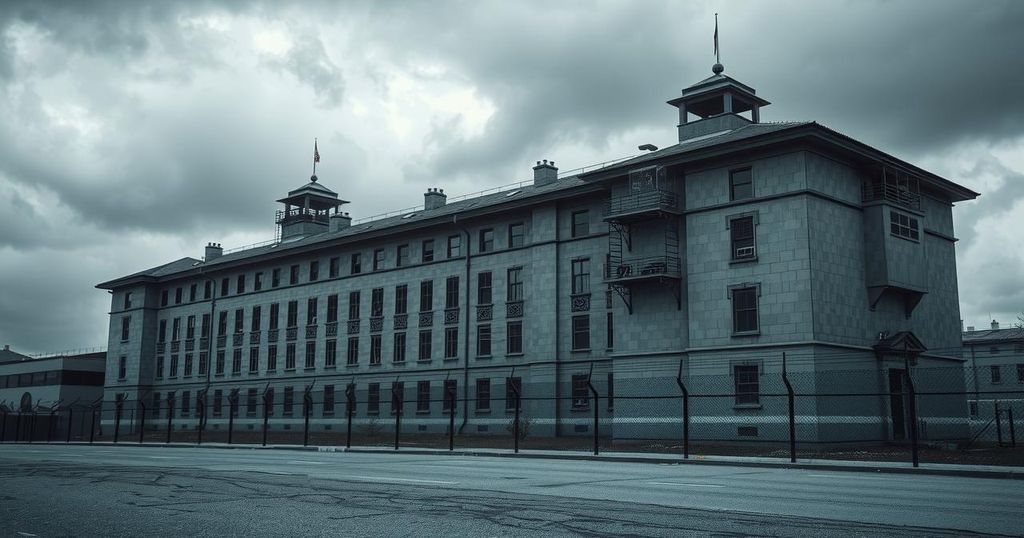DHS Secretary Noem’s Visit to El Salvador Prison: Focus on Deportation Policies

U.S. Homeland Security Secretary Kristi Noem toured a high-security prison in El Salvador holding deported Venezuelans accused of gang ties. The Trump administration’s immigration policies, under scrutiny by human rights advocates, highlight concerns over treatment and legal status of the detainees. Noem’s visit aims to strengthen deportation processes amid ongoing legal challenges concerning the wrongful deportation claims and human rights violations.
On Wednesday, U.S. Homeland Security Secretary Kristi Noem visited a high-security prison in El Salvador, where deported Venezuelans, accused of gang affiliations, are being held. This facility has become a focal point for the Trump administration’s immigration policies, which aim to remove individuals labeled as the “worst of the worst.” During her tour, Noem observed the crowded cell blocks and isolation units, emphasizing the administration’s intent to showcase its deportation efforts.
Noem’s visit coincides with ongoing court cases where the Trump administration defends its actions in deporting Venezuelans under the Alien Enemies Act. Human rights advocates have criticized this policy, highlighting concerns over the treatment and human rights conditions faced by those incarcerated. The conditions within the prison are severe, with inmates reportedly denied the chance to step outside.
The deportation of Venezuelans occurred after the Trump administration claimed an immigration crisis due to gang activities, thereby justifying their removal from the U.S. However, legal challenges have arisen, particularly preventing further deportations under the cited act. Many deportees are now uncertain about their future, as they are not serving formal sentences and have not been given an opportunity for legal recourse in El Salvador.
While the Trump administration has branded these deportees as dangerous, there has been a lack of transparency regarding individual identities and their alleged criminal backgrounds. Families of affected individuals assert their innocence and have sought legal assistance in efforts to gain their release from imprisonment under questionable circumstances.
The prison, officially known as the Terrorism Confinement Center, operates under a state of emergency established by President Nayib Bukele, which has led to substantial arrests since 2020. Bukele’s approach underscores a harsh crackdown on crime but poses significant ethical questions regarding due process and rights for the imprisoned.
Secretary Noem is expected to continue her trip through Central America, focusing on strengthening immigration enforcement. The ongoing partnerships between the U.S. and El Salvador aim to facilitate increased deportations while navigating challenging legal and humanitarian aspects. Bukele’s administration remains a key ally for the U.S. as it seeks to manage immigration and associated concerns.
In summary, Secretary Kristi Noem’s visit to the El Salvador prison reflects the U.S. government’s commitment to stringent immigration enforcement and deportation of Venezuelans deemed dangerous. The detention conditions raise considerable human rights concerns, and the lack of legal clarity regarding the deportees’ status presents challenging implications. The situation underscores the delicate balance between national security policies and ensuring humane treatment of individuals caught in such legal frameworks.
Original Source: www.pbs.org







